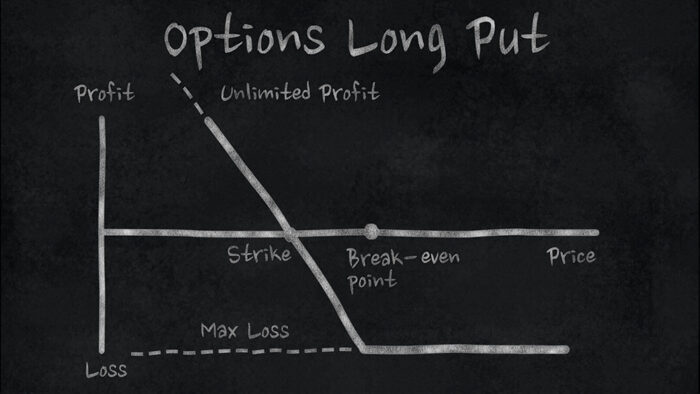A prophet gains notoriety by their ability to accurately forecast future events. The economy and markets are filled with people making forecasts about what the future holds and how to invest accordingly. The sum of the “forecasts” becomes what we commonly refer to as Consensus.
The problem is that consensus is rarely accurate and often drastically wrong. Famed economist John Kenneth Galbraith was quoted as saying, “There are two kinds of forecasters: those who don’t know, and those who don’t know they don’t know.” Taking this as a true statement, it follows that most portfolios are constructed using data that is flawed at best, allocating using forecasts that that are rarely accurate.
You might think that the Fed, of all groups, should be able to forecast near term events with some accuracy given that they actually control many of the items like interest rates and reserve requirements. The Fed is also home to more than 400 PH.D economists whose roles are to guide the decision makers with what is happening in the economy in real time. The reality, however, is that the Fed’s forecasting track record is abysmal. The Fed provides forward guidance to supposedly help the markets know what they are planning to do with interest rate policy. Lately, however, the accuracy of their guidance has been so wrong, Chairman Powell is considering discontinuing the guidance.
Current consensus on the economy is that we will experience a recession mid-year 2023 as the Fed continues to hike rates to bring inflation down. It is thought that the recession will be relatively mild because corporate and household balance sheets are relatively strong and not over-extended. If we take as a given that consensus is wrong more than it is right, investors should be considering at least two alternative scenarios: (1) no recession occurs in 2023, and (2) the recession comes and turns out to be steep and lengthy.
There are a number of diverging data points that suggest to me what occurs in the economy this year will not fit into existing definitions for recessions. There may be more of a rolling recession that occurs on a sector-by-sector basis rather the entire economy contracting at the same time. We are currently experiencing contraction in housing and manufacturing while consumer spending on services continues to grow. In my opinion, housing is likely to remain weak and under pressure until interest rates and mortgage rates begin to fall, and that may coincide with weakness in consumer spending. The net effect of some sectors contracting while others expand could be flat growth rather than an actual contraction.
Consensus for the markets include stocks being broadly lower over the first half of 2023 as equities remain under pressure from Fed rate hikes. It is believed the Fed will finish hiking rates at the end of Q1 and is likely to be cutting rates in the 2nd half of the year leading to a rally in the stock market. Many still believe the stock market will rise 10% on the year.
There is a reason why so few predictions about what the markets will do turn out to be accurate. There are so many known variables that impact how stocks will trade and no way to know which variables will matter at different points in time. There are also the unknowns that cannot be forecasted but always seems to occur, think Ukraine, pandemic, N. Korea, etc. The markets often trade in ways that are counter intuitive. For example, stocks often rise before the economy shows strength and fall before the economy contracts. Some of the strongest return periods of the S&P 500 have been when consumer sentiment is falling, and GDP is weak. Numerous studies have shown that stocks tend to be negatively correlated with economic growth at least in the near term.
What seems clear in the midst of murkiness is allocating a portfolio on the basis of consensus forecasts is a poor strategy. Having a model that is capable of taking in real time market data and making allocation decisions based on actual volatility or risk has a much better track record than relying on the opinion of so-called “experts”. Many of the high growth companies that surged from the middle of 2020 through the middle of 2022 have seen their valuations cut in half and are likely near prices that that can be supported. Other sectors, like energy, have held up amazingly well the last 6 months and could be nearing a point of overvaluation. History does teach one reliable truth: just because something worked well in the past does not mean it will continue.
—
Originally Published February 2023 – The Prophet Named Consensus
Disclosure: Peak Capital Management
Peak Capital Management, LLC, is a fee-based SEC Registered Investment Advisory firm with its principal place of business in Colorado providing investment management services. A copy of our current written disclosure statement discussing our advisory services and fees is available for your review upon request. Advisory services are only offered to clients or prospective clients where our firm and its representatives are properly licensed or exempt from licensure. No advice may be rendered by Peak Capital Management, LLC unless a client service agreement is in place. Nothing herein should be construed as a solicitation to purchase or sell securities or an attempt to render personalized investment advice. To receive a GIPS compliance presentation and/or our firm’s list of composite descriptions, please email your request to info@pcmstrategies.com. Peak Capital Management claims compliance with the Global Investment Standards (GIPS). GIPS is a registered trademark of CFA Institute. CFA Institute does not endorse or promote this organization, nor does it warrant the accuracy or quality of the content contained herein.
Disclosure: Interactive Brokers
Information posted on IBKR Campus that is provided by third-parties does NOT constitute a recommendation that you should contract for the services of that third party. Third-party participants who contribute to IBKR Campus are independent of Interactive Brokers and Interactive Brokers does not make any representations or warranties concerning the services offered, their past or future performance, or the accuracy of the information provided by the third party. Past performance is no guarantee of future results.
This material is from Peak Capital Management and is being posted with its permission. The views expressed in this material are solely those of the author and/or Peak Capital Management and Interactive Brokers is not endorsing or recommending any investment or trading discussed in the material. This material is not and should not be construed as an offer to buy or sell any security. It should not be construed as research or investment advice or a recommendation to buy, sell or hold any security or commodity. This material does not and is not intended to take into account the particular financial conditions, investment objectives or requirements of individual customers. Before acting on this material, you should consider whether it is suitable for your particular circumstances and, as necessary, seek professional advice.





















